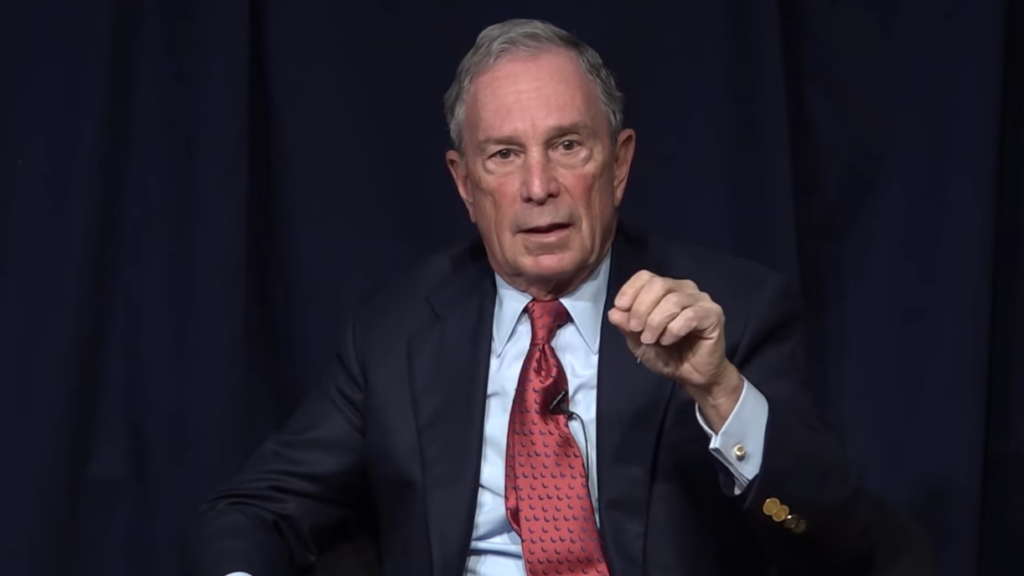In a resurfaced clip from 2016, billionaire and presidential hopeful Michael Bloomberg suggested farming is simple and he could teach us how: Dig a hole, add a seed and some water. Then, “up comes the corn.”
The information age requires a different skill set than factory or farm labor, he said, and “you have to have a lot more gray matter.”
These comments fueled criticism that Bloomberg is an out-of-touch elitist. The clip also happened to be unearthed ahead of a New York Times report detailing the billionaire’s influence network, which he built upon billions of dollars in political and nonprofit donations.
So, why did Bloomberg say that he, a former Wall Street executive with no prior agriculture experience, could teach anyone how to farm? Your guess is as good as mine, but I do have some context.

What was he supposed to be talking about?
The clip that circulated is from an event at the University of Oxford’s business school, where Bloomberg talked about other business things, like the time he got fired from Salomon Brothers, a Wall Street institution that broke trading regulations before being purchased by Travelers Group in 1997.
His farming comments were in response to a question from the audience: How should business leaders address inequality?
His answer went a lot of places – “up comes the corn” places. Bloomberg, who was New York City’s mayor during the Occupy Wall Street protests, initially seemed to disagree that rising inequality is an issue. He eventually concluded that “it’s not business’s job” to address. The job of business, he said, is to maximize profits, but maybe tax credits would incentivize companies to increase hiring. A quick fact check: Inequality is rising in the United States and there is evidence that owing less in taxes doesn’t compel companies to create jobs.
But why did he bring up corn and gray matter?
Bloomberg talked about the United States’ transition from agriculture and manufacturing-based economies to the “information age,” a system that embraces technology but also displaces workers and makes some jobs obsolete or redundant. (Side note: We have a service-based economy.)
The clip that’s circulating stops before Bloomberg claimed that it’s “almost impossible” to teach workers new skill sets.
He later said: “But the thing that’s the most important, that will stop them from setting up the guillotine some day, is the dignity of a job, and nobody’s yet come up with a simple solution in this day and age to how we create jobs, particularly for people already out of school.”
Bloomberg also claimed that a West Virginia coal miner would never move to California for a job in solar energy. “And even if he got there, he’s not going to get those jobs. Nobody’s going to hire an older person,” he said, adding that agism is an issue in hiring.
What else did he say?
You can watch his complete answer here, but some highlights:
- He claimed the bottom 20 percent is better off now than in the past, because everyone has a car and a cellphone.
- Lowering tuition hurts the poor, and instead colleges should raise the cost “as high as you can,” he said, so wealthy students can subsidize the education of low-income students. He didn’t provide an example of this or other evidence that the idea would actually work.
- On wealth redistribution: “But you take the money from the rich, and you give it to the poor. You do it for altruistic reasons. You do it because you don’t want the poor on your doorstep and a variety of things.”
- He suggested the Works Progress Administration, which employed more than 8.5 million Americans during the bleakest depression in United States history, was a government inefficiency. And the WPA’s work, which included infrastructure projects building things like roads and bridges, was not necessary.
Contact Big If True editor Mollie Bryant at 405-990-0988 or bryant@bigiftrue.org. Follow her on Facebook and Twitter.
We’re nonpartisan and nonprofit. Support Big If True.

